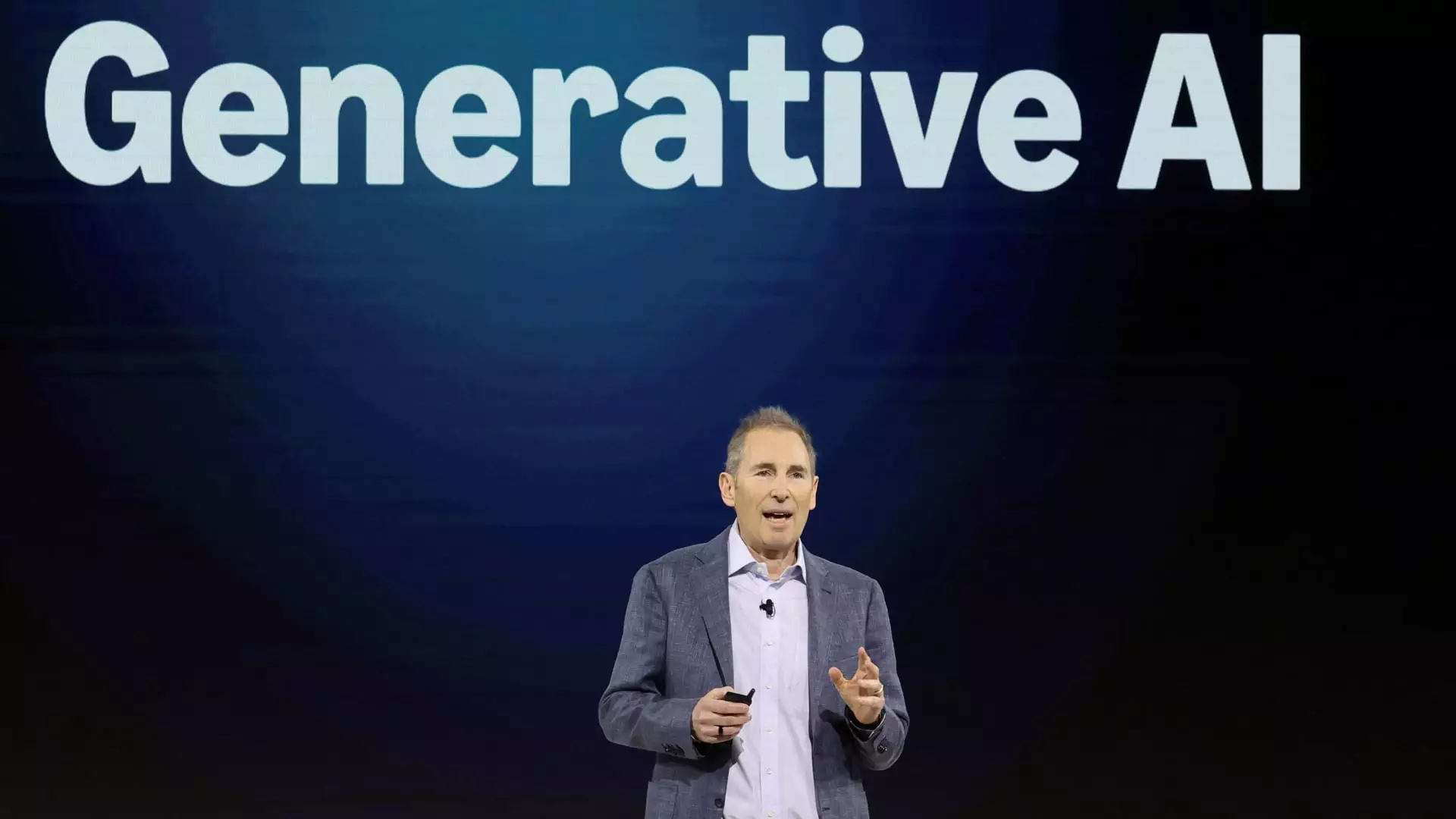Amazon’s recent ventures into generative artificial intelligence (AI) mark a significant shift in the landscape of online shopping and healthcare. The company is not merely dipping its toes into the water; it is swimming aggressively, testing innovations that could fundamentally transform consumer experiences and merge them seamlessly with AI capabilities. With their ventures such as Interests AI and Health AI, it’s clear that Amazon aims to pave a new path where users interact with their shopping platform in a more natural and intuitive manner.
By leveraging conversational language, Interests AI enables consumers to articulate their needs more freely—no longer constrained by traditional search terms but empowered to express their desires in their unique voice. This bold step not only enhances user experience but positions Amazon as a trailblazer in an e-commerce arena increasingly dominated by those wielding AI. How consumers respond to this transformation could dictate the company’s future trajectory, especially as they aim to draw users away from competitors like OpenAI’s ChatGPT. The innovation is intriguing; however, it raises concerns about how authentically engaged users feel when interacting with a digital interface. Are we really enhancing our customer experience, or merely trading one form of digital interaction for another?
Health AI: A Double-Edged Sword
On the healthcare front, Amazon’s Health AI chat feature presents an equally compelling, yet troubling, prospect. While it offers users quick access to medical information and general healthcare guidance, it also treads perilously into the territory of personalized healthcare advice—a domain that is traditionally handled with the nuance and care that only human professionals can provide. By promoting products such as ice packs and common medications, Health AI might empower users to take control of their health, but it could also lead to misguided self-diagnosis or treatment. According to Amazon, responses bear a “clinically verified” tag only if reviewed by licensed clinicians; yet this raises questions about accountability. As users flock to Amazon for simple solutions, how much responsibility does the platform bear for the consequences of its AI-generated suggestions?
Unfortunately, while the services may aim to streamline healthcare access, they can also foster unintentional harm. As a society, we should question whether the sanitization of medical advice into a simple chatbot format obscures the richness of human experience and expertise that is often necessary for effective healthcare. Can a chatbot sustitute for the nuanced and compassionate guidance offered by medical professionals? It’s a thought that merits serious reflection.
Amazon’s Vision: Data-Driven Insights
The depth and breadth of Amazon’s AI implementations indicate a corporate strategy driven not just by consumer customization but also by data acquisition. Amazon’s investments in AI across its retail and cloud computing sectors reflect an ambition to gather and analyze user behaviors on an unprecedented scale. According to CEO Andy Jassy, the company is on track to develop around 1,000 generative AI applications—a staggering figure that demonstrates the commitment to reshaping their digital framework.
As Amazon consolidates information that spills over from both its shopping and health domains, it will inevitably gain valuable insights into consumer interactions—data that could inform everything from marketing strategies to product development. However, we must pause to examine the ethical implications surrounding this level of data collection. Is the end justified by the means? Are users aware of how their preferences and interactions with these AI tools will be used beyond their immediate experience? The fine line that Amazon walks raises important questions about consumer privacy and consent in the age of AI.
The Future of Alexa and Beyond
An equally buzzworthy announcement is Amazon’s impending release of Alexa+, which promises to incorporate generative AI to meet more complex user needs. This move not only enhances the role of voice assistants but also intertwines Health AI applications—potentially allowing Alexa+ to provide more sophisticated responses to health-related queries. While this integration holds promise for convenience and efficiency, one can’t help but consider the potential risks involved. How much autonomy are we ceding to machines in our everyday lives, particularly regarding important matters such as health?
Andrew Bell’s insights into the interplay between Alexa+ and Health AI highlight a future where our interactions could become increasingly mediated by these smart systems. With the potential ease of access to information comes an equally pressing need to scrutinize the implications of relying on AI as a decision-making entity.
As Amazon ventures further into this brave new world, the stakes are high. While these innovations promise to enhance consumer engagement, they must do so with a firm commitment to ethical considerations.


Leave a Reply